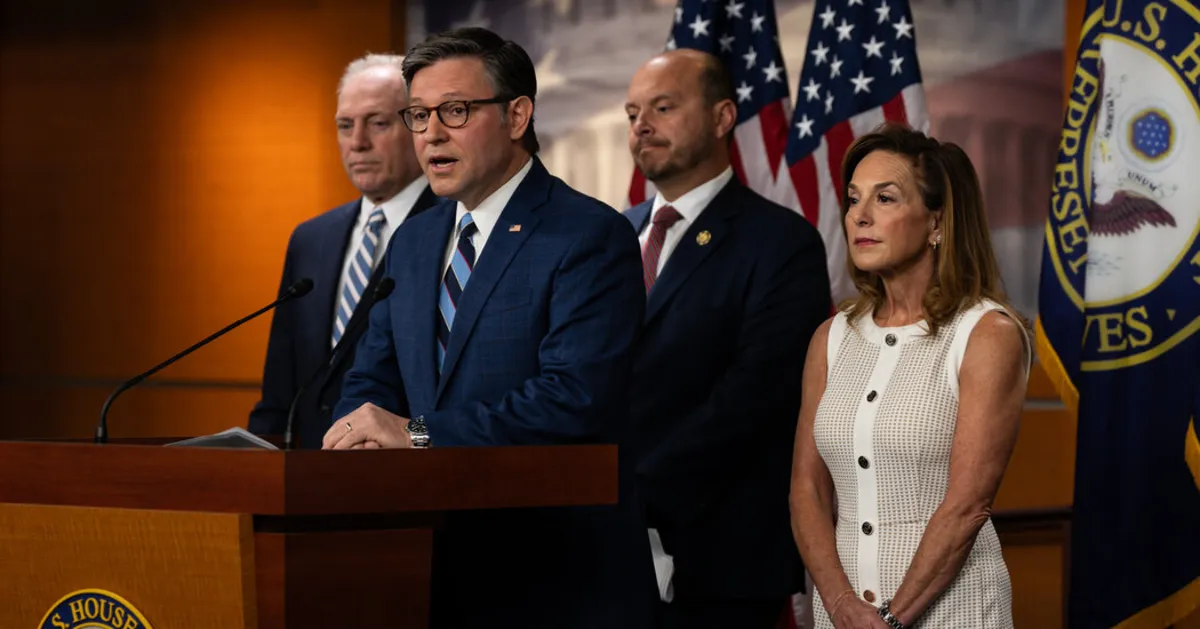
The federal shutdown is approaching its fourth week, creating a significant political risk for Democrats. Republicans have accused Democrats of neglecting their duty to fund the government, putting the latter on the defensive. However, this situation has also highlighted vulnerabilities for President Trump and the G.O.P. concerning health care—an issue that has historically been a weak point for the party.
Democrats in Congress are steadfast in their demand that any spending deal must include an extension of expiring Affordable Care Act tax credits. These credits are crucial for preventing premium increases and the potential loss of coverage for millions of Americans. By insisting on this extension, Democrats have compelled the G.O.P. to confront its internal divisions regarding the health care law, which many Republicans oppose. However, they also acknowledge that dismantling it could lead to severe political repercussions.
Within the Republican Party, there is a significant divide regarding the future of the Affordable Care Act. Some hard-line Republicans advocate for the outright repeal of Obamacare, while others recognize the imprudence of such a move without a viable alternative—a concept the party has struggled to define for years. Despite urging from Trump to persist in efforts to repeal the 2010 health law, there remains a lack of clarity on what a replacement would entail.
In light of the ongoing shutdown, Republican leaders have attempted to pivot the conversation away from health care. Speaker Mike Johnson claimed in a recent interview that the shutdown is not a health care issue, accusing Democrats of creating a distraction. He pointed out that the subsidies in question do not expire until the end of the year, suggesting that Democrats are prematurely raising the alarm.
Despite their efforts to change the narrative, the prolonged shutdown has forced Republican lawmakers to defend their opposition to tax credits that are popular among constituents across the political spectrum. Notably, many individuals receiving these subsidies reside in Republican districts. In a surprising move, 14 House Republicans, including some vulnerable members from swing districts, have backed legislation to extend the tax credits until January 2027.
Simultaneously, members of the hard-right House Freedom Caucus continue to push for the repeal of Obamacare. Senator Mike Lee of Utah has publicly stated that health care costs will keep rising until Obamacare is repealed. He cautioned that Republicans should not shy away from their longstanding commitment to dismantling the health care law, despite the political risks involved.
As early as last summer, Trump’s pollster, John McLaughlin, warned Republican leaders that failing to extend the Obamacare subsidies could lead to a "political catastrophe" for the party. Recently, Senator Chuck Schumer, the Democratic minority leader, emphasized that if Republicans do not reconsider their stance, they will be accountable for skyrocketing health care costs that could push many individuals out of coverage entirely.
The last time Republicans controlled a governing trifecta in Washington, they faced significant challenges in converting their anti-Obamacare sentiments into a workable legislative alternative. This failure has been etched into the party's memory, with many now viewing it as a cautionary tale. Following a devastating loss in the 2018 midterms, which Democrats attributed in large part to health care issues, Republicans have struggled to clarify what "repeal and replace" means.
President Trump's lack of a coherent health care plan has further complicated Republican messaging. Although he has oscillated between denouncing Obamacare and suggesting minor overhauls, he has not articulated a clear strategy. Speaker Johnson recently acknowledged that outright repeal of the 2010 law is unfeasible due to its deep-rooted presence in the health care system.
As the shutdown continues, Republicans are attempting to redefine themselves as the party that is addressing health care issues. Johnson has claimed this narrative, promoting Trump's tax cuts as a means to lower health care premiums. However, critics point out that these cuts would only marginally reduce costs and could lead to millions losing Medicaid coverage.
Some Democrats are optimistic that the current political landscape may mirror the successful 2018 midterm election cycle. Pollster Geoff Garin noted that Republicans are positioning themselves as obstacles to resolving the health care crisis, a move that may have repercussions in the upcoming elections. The party's core beliefs on health care often clash with the views of a significant majority of Americans, leading to growing frustration among voters.
Representative Marjorie Taylor Greene of Georgia recently expressed her frustration over the lack of a clear Republican plan to reform the health insurance industry, indicating some awareness within the party of the disconnect between voters and G.O.P. lawmakers in Washington. This ongoing debate and the shutdown's impact on health care policy will likely shape the political landscape as the next election cycle approaches.